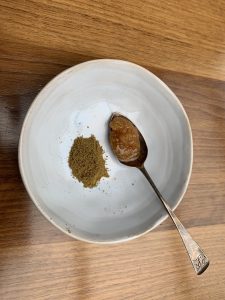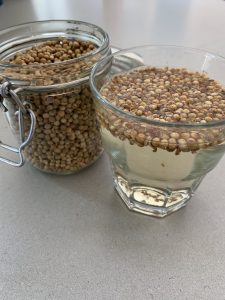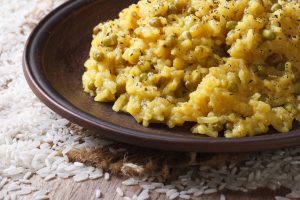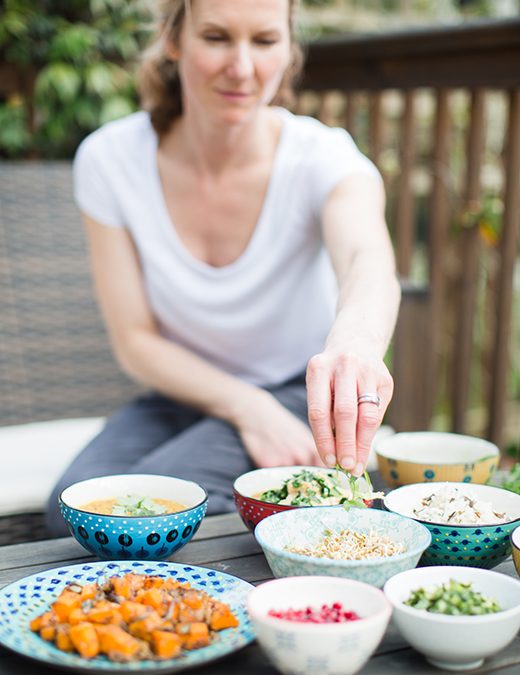Time for a digestive system re-set
As we transition from one season to the next, it’s the perfect time to cleanse and re-set the digestive system.
When preparing for your cleanse, it is worthwhile taking a few days to pay a little more attention to how your digestion and general wellbeing are at the moment. Observe if you feel any of the symptoms below: Ajirna
Balancing the digestive fire (agni deepana) and assisting the body eliminate toxins (ama pachana) are the principle starting point for Ayurvedic therapy.
The strength of the digestive fire (agni) directly affects how digested food nourishes the tissues of the body and ultimately the quality of Ojas; the life sap which pervades every tissue of the body providing strength and immunity.
Most diseases are due to poor digestion, another good reason to ensure the digestive fire is burning steadily and digestion the food you eat. Digestive function is directly related to the doshas: Vata, Pitta and Kapha. When the doshas become imbalanced through incompatible foods or lifestyle activities, the agni becomes imbalanced leading to the production of toxins.
You can read more about the doshas HERE
Indigestion (Ajirna)
Generally, excess Vata in the body produces a weak, irregular digestive fire which leads to gas, bloating and constipation.
Excess Pitta leads to burning sensations. It could be described as putting too much fuel on the fire making it burn too strongly. Excess Pitta feels like: heartburn, excessive thirst, sour taste in the mouth and diarrhoea.
Excess Kapha in the digestive system makes is sluggish. The digestive fire burns slowly. This leads to heaviness, lethargy and excessive mucous.
Healthy Digestion
- Elimination of stools at least 1-2 each day.
- Burping with no smell or taste after eating.
- Free from above symptoms.
- Regular urination.
- Lightness of body.
- Natural thirst and hunger.
An autumn cleanse helps climate excess Pitta, which can accumulate over summer. Autumn is Vata season, so balancing Vata is a key feature of our Autumn cleanse. For Vata dosha, oiling and moisturising the internal and external body is essential.
Preparation
External Oleation
If external oleation (oiling the body) is not part of your daily routine is the perfect season to introduce this balancing therapy. Sesame oil is warning and heavy in nature, so perfect for balancing Vata dosha. Traditionally, applying oil to the body in the morning, leaving for around 20 mins then showering is practice. I find not everyone has the luxury of this time in the morning, and the oil has a tendency to clog up your pipes!!
I recommend applying oil daily, after showering, especially for Vata dosha.
For a summer cleanse, I may introduce oiling the body with coconut oil for it’s cooling effect for Pitta dosha.
If you cannot sustain this practice, try to incorporate in into your seasonal cleansing routine a few day before and during your 3-day Kitchari cleanse.
Internal Oleation
Oiling the internal body is specifically balancing for Vata dosha as it helps balance the dry nature of Vata. Drinking a small amount of warm liquified ghee, not only moisturises the internal body, but also helps balance the digestive fire. If including this as part of your cleanse process, complete this for around 3 days. Ghee is very balancing for Vata and Pitta dosha, but may imbalance Kapha dosha.
Cooling with ghee is also very balancing for Vata dosha throughout Autumn.
You can read more about the properties of ghee HERE
The 3 day Kitchari cleanse or mono-diet.
During the mono diet phase you will follow a simple but nourishing diet, which is easy to digest and will sustain you through the last phase of your cleanse.
Kitchari is an Ayurvedic staple of mung beans and rice, spices according to your Ayurvedic type.
It is advisable to spend some time reading over the following information to ensure you have all the required ingredients, its and spices for your cleanse. Ensure you choose 3 days free of interruption; over the weekend may be the ideal time.
Refer to the above symptoms of Ajirna for guidance on what spices will help bring balance to your digestive fire.
For the 3 days you will have have kitchari for lunch and dinner. You can also have some steamed green vegetables: broccoli, green beans, spinach or kale. Try to have lunch around 12pm, when the digestive fire is strongest and dinner around 7pm to ensure at least 12 hours fasting until breakfast. Make enough Kitchari for lunch and dinner.
Preparation
Read the following and note down all the spices and ingredient you will need for the cleanse.
Agni Deepana
There are many spices we can use to balance the digestive fire: cumin, nigella seeds, fennel seeds, ajwan, fenugreek, black pepper and coriander seeds are the most common which you will have easy access to.
For the cleanse process, and also when you feel your digestion is a little out of whack we will use cumin seeds and coriander seeds.
Cumin and Honey

Before lunch and dinner. 1/2 tsp honey with cumin (or nigella seeds). Dry roast the seeds, until just toasted – you will start to smell the seeds and may see a few wisps of smoke. This only takes around 30 seconds. Make up a small batch of the dry roasted cumin seeds and store it in an airtight jar. Leave it close to hand so you remember to take it.
Coriander Water

Coriander water is a classical Ayurvedic drink. The uses of coriander water are explained in the ancient Ayurvedic texts.
It is a natural detoxifier, clearing the body and tissue channels. It has cooling properties, therefore perfect if you are experiencing burning sensations or excessive thirst and high Pitta conditions during summer.
- 1 glass coriander water: infuse 3 tsp of lightly crushed coriander seeds in water overnight. Drink in the morning.
Ama Pachana
Triphala is widely used in Ayurveda for many conditions, for its ama Pachana qualities we will use it during the cleanse to gently allow the body to release toxins. 2 Triphala tablets are to be taken in the evening before bed.
Kitchari

For Pitta balancing:
Pitta Spice Mix
You can make this in advance and store it in an air tight jar.
- 2tbs Fennel seeds
- 2tbs Cumin seeds
- 2tbs Coriander seeds
- 1tbs fenugreek seeds
- Seeds of 10 cardamon pods
- 1/2tsp Saffron strands
- 1tbs cinnamon powder
Mung Dhal Kitchari (Pitta)
These quantities make enough for lunch and dinner.
- 75g yellow mung dhal
- 75g basmati rice
- Thumb sized piece of grated fresh ginger
- 2 tbs unsweetened shredded coconut – desiccated coconut
- 3 tbs ghee
- 1/2 tsp rock salt
- 2tbs of the above spice mix
- 750mls water
Heat Ghee (or oil) and add spices and ginger. Fry for a few minutes. Add mung dhal and 250mls water. Cook for 5 mins then add rice, 500mls water. Finish with desiccated coconut. Cook until mung dahl and rice are soft.
For Vata Balancing
- Vata Spice Mix
- 2tbs Fennel seeds
- 2tbs Coriander seeds
- 2tbd cumin seeds
- 1tbs ground turmeric
- 2tbs ground ginger
- 1tsp asafoetida (hing)
- 2tsp rock salt
- Mung Dal Kitchari – Vata
- 75g basmati rice
- 75g yellow split mung dhal
- 3 tbs ghee
- Thumb size piece of fresh grated ginger
- 1 clove garlic
2tbs of Vata spice mix.
Heat Ghee (or oil) and add spices and ginger. Fry for a few minutes. Add mung dhal and 250mls water. Cook for 5 mins then add rice, 500mls water. Cook until rice and mung dahl are soft.
For Kapha Balancing
Kapha Spice Mix
- 2tbs Coriander seeds
- 2tbs cumin seeds
- 1tbs mustard seeds
- 1tbs ground ginger
- 1tbs ground turmeric
- 1tsp ground cloves
- 1tsp ground black pepper or pippali
- 1/4tsp chilli powder
Mung Dhal Kitchari (Kapha)
- 75g yellow mung dhal
- 75g basmati rice
- 2 tbs ghee
- Thumb size piece of fresh ginger.
- 4 bay leaves
- 2tbs Kapha spice mix
- 1/2 tsp salt
- 750mls water
Heat Ghee (or oil) and add spices and ginger. Fry for a few minutes. Add mung dhal and 250mls water. Cook for 5 mins then add rice, 500mls water. Finish with desiccated coconut. Cook until mung dahl and rice are soft.
Your Daily Cleansing Routine
Avoid tea, coffee, alcohol, nicotine or other stimulants throughout the cleanse.
- Wake early around. Ideally around sunrise, but that might be a little early if you are not in the habit.
- Gentle movement and breath work practice and meditation. Follow one of our many practices for our online video library. Click the red ‘book now’ link from the website.
- Shower and gently exfoliate the skin.
- Massage body with sesame oil or coconut oil for its cooling properties during summer. .
Breakfast:
- Strained coriander water
- Hot water or fresh ginger tea. Pitta types may find this too heating during summer so maybe just hot water or fennel tea.
- A light breakfast. Here are some examples here
Lunch and dinner
Before lunch and dinner. Cumin and honey.
Kitchari.
Herbal teas or room temperature water can be drunk throughout the day. Fruit between meals, only if you are hungry. Eat fruit on its own and don’t combine fruits or add yoghurt.
Practice your regular exercise or Yoga routine. Yin or gentle yoga is advisable during the cleanse.
Before bed.
- Massage feet and legs with warm sesame oil. Coconut oil is good for high Pitta conditions.
- 2 triphala tablets before bed.

